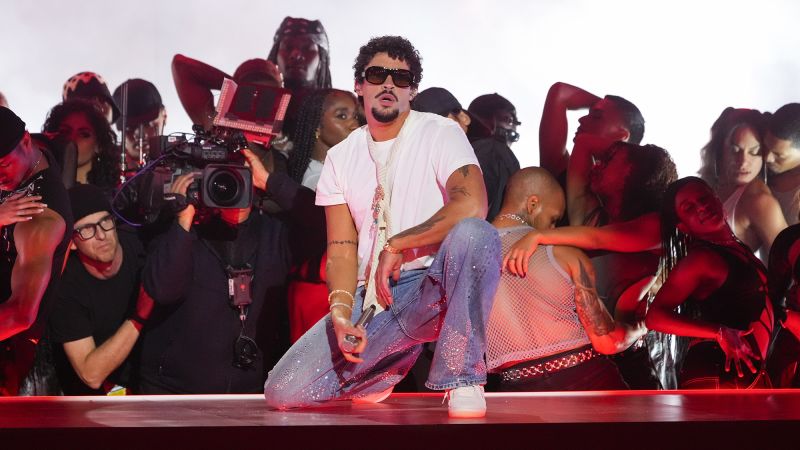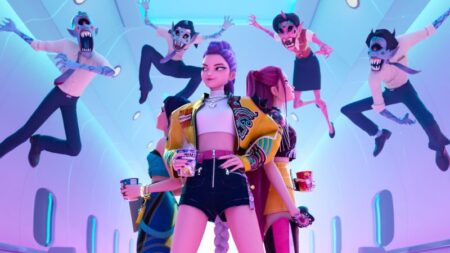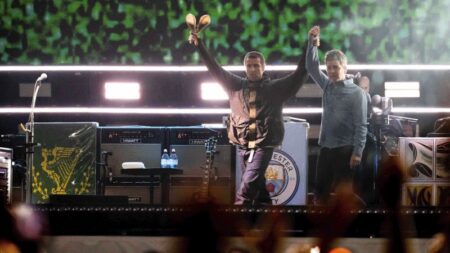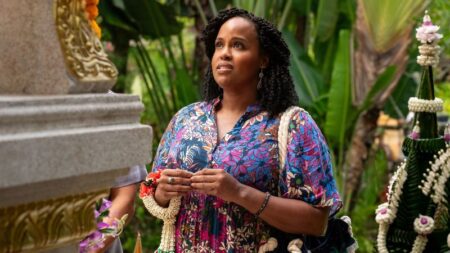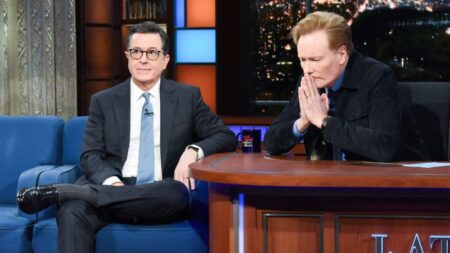Puerto Rico has been buzzing with excitement as native superstar Bad Bunny, whose real name is Benito Antonio Martinez Ocasio, embarks on his much-anticipated residency. This series of performances marks a significant milestone for both the artist and the island, resonating deeply with fans and residents alike. The residency, described as a cultural phenomenon termed “Bad Bunny mania,” has led to a surge in local commerce, with merchandise flying off the shelves and restaurants proudly serving themed menu items inspired by the artist’s unique style and music.
The 30 concerts, which are set to unfold at the prestigious Coliseo de Puerto Rico, are largely regarded as a heartfelt celebration of Puerto Rican identity, culture, and resilience. All tickets have sold out, emphasizing the profound connection that Bad Bunny has fostered with his fellow Puerto Ricans. The initial nine shows are thoughtfully dedicated to local residents, symbolizing Bad Bunny’s desire to prioritize his homeland and its people. Historian Jorell Meléndez-Badillo highlights that this decision underscores a personal message from Bad Bunny, communicating with Puerto Ricans above all.
In an era marked by economic struggles, gentrification, and remnants of colonialism, the residency serves as a beacon of hope and pride for many Puerto Ricans. Events surrounding the concerts have turned into vibrant celebrations, where food vendors offer culinary delights, and the air is filled with music as fans gather in spirited anticipation outside the arena. The festive atmosphere encapsulates the essence of joy and communal connection that Bad Bunny aims to incite through his performances.
Academics and cultural commentators have lauded the significance of these concerts, seeing them as emblematic of Puerto Rican self-reliance. Javier J. Hernández Acosta, the dean at the School of Arts, Design and Creative Industries at the Universidad del Sagrado Corazón in San Juan, asserts that these shows were designed to showcase the island’s creative potential, which he regards as valuable for future social, economic, and political advancements.
Beyond mere entertainment, Bad Bunny’s musical repertoire offers deep reflections on pressing societal issues. His latest album, “Debí Tirar Más Fotos” (I Should Have Taken More Photos), is a heartfelt exploration of themes such as injustice, gentrification, and the complex legacy of American colonialism. Notable songs like “Lo Que Le Pasó a Hawaii” lament the potential loss of Puerto Rican identity amid ongoing displacement. With poignant lyrics, he captures the struggles many face, imploring the audience to hold onto their cultural roots and heritage, emphasizing the importance of preserving their sense of community.
As Puerto Ricans grapple with a diaspora that has seen over 5 million Puerto Ricans migrating to the US mainland due to economic hardships, the upcoming concerts also represent a powerful affirmation of their culture and identity amidst ongoing challenges. Meléndez-Badillo aptly summarizes the essence of the residency, noting that the music resonates with the Puerto Rican experience and celebrates their vibrant culture in the face of adversity.
However, the world tour that follows the residency brings a twist, as it notably excludes performances in the US mainland. This decision has drawn speculation from fans and critics alike, suggesting a deliberate “political statement” critiquing the systemic issues faced by Latinos in America. In an age where Bad Bunny has been vocal against US immigration policies, his choice serves as a reminder that he is standing firm for his community, shaping narratives that align with his artistic vision.
Ultimately, amid all the challenges faced, the residency offers a chance for Puerto Ricans to reclaim joy and celebration in their lives. “We have to celebrate things,” Bad Bunny wisely states, and in doing so, he brings a renewed sense of hope and resilience to the island, as the vibrant rhythms of his music echo through the hearts of many. The first show is not just a concert; it’s a meaningful moment for a community that has faced adversity yet continues to rise together. For Bad Bunny and his fans, this residency is not merely an artistic endeavor but a profound declaration of cultural pride and identity.





